On Easter Sunday, the worship band at Bethel Community Church in Redding, California, opened the service with “This Is Amazing Grace,” a 2012 hit that has remained one of the most popular worship songs of the past decade.
Chances are thousands of other churches around the country also sang that song — or one very similar to it.
A new study found that Bethel and a handful of other megachurches have cornered the market on worship music in recent years, churning out hit after hit and dominating the worship charts.
The study looked at 38 songs that made the Top 25 lists for CCLI and PraiseCharts — which track what songs are played in churches — and found that almost all had originated from one of four megachurches.
All the songs in the study — which ranged from “Our God” and “God Is Able” to “The Blessing” — debuted on those charts between 2010 and 2020.
Your tax-deductible gift helps our journalists report the truth and hold Christian leaders and organizations accountable. Give a gift of $30 or more to The Roys Report this month, and you will receive a copy of “Baptistland: A Memoir of Abuse, Betrayal, and Transformation” by Christa Brown. To donate, click here.
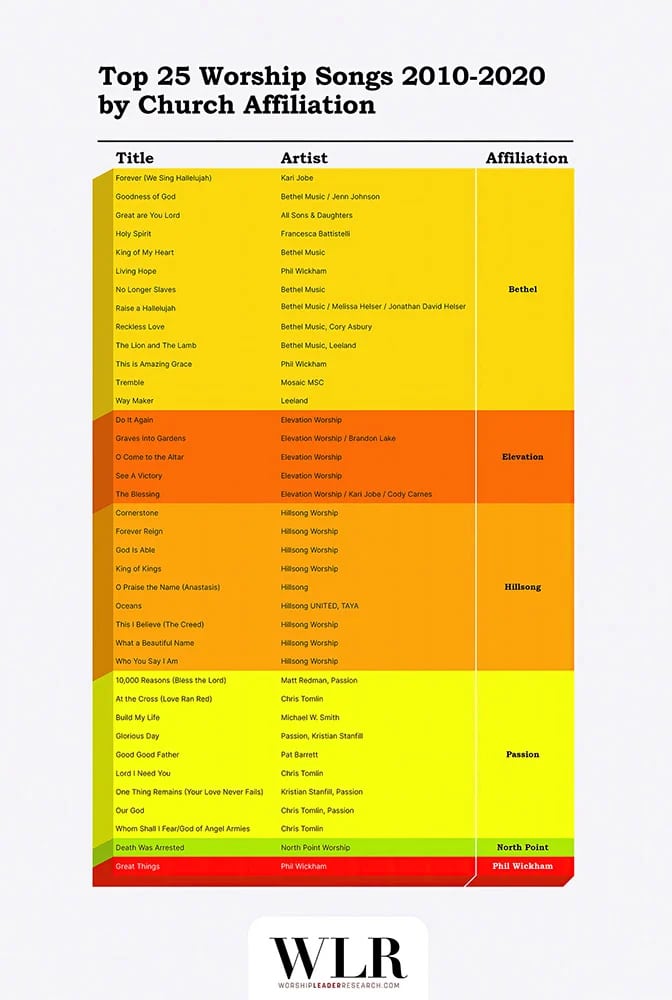
Of the songs in the study, 36 had ties to a group of four churches: Bethel; Hillsong, a scandal-ridden megachurch headquartered in Australia; Passion City Church in Atlanta, which runs a popular youth conference that fills stadiums; and Elevation, a North Carolina congregation with ties to the Southern Baptist Convention.
“If you have ever felt like most worship music sounds the same,” the study’s authors wrote, “it may be because the worship music you are most likely to hear in many churches is written by just a handful of songwriters from a handful of churches.”
The research team, made up of two worship leaders and three academics who study worship music, made some initial findings public on Tuesday. More details from the study will likely be released in the coming weeks.
Elias Dummer, a worship leader and recording artist, said he and his colleagues have been watching changes in worship music over the past decade. They wanted to know how worship songs become popular among churches, he said. They also wanted to know how the business of producing and marketing songs is shaping the worship life of local churches.

Dummer said many worship leaders believe the best songs become the most popular in churches. They also believe those songs become popular because they work — people respond to them during worship services and want to sing them over and over. But that’s not exactly true. Dummer and his colleagues found many of the more recent hits songs were released as singles on Spotify and other streaming services, which helps fuel their popularity.
“There are actual mechanisms by which songs become the most significant,” he said. “It’s not just whatever songs the Holy Spirit blesses that make it to the top of the charts.”
For their study, researchers compared popular worship songs written before 2010 with those written from 2010 to 2020. Those earlier songs were often associated with individual worship leaders such as Chris Tomlin and Matt Redman, rather than with churches, and came from a variety of sources.
But beginning in 2010, the most popular new songs began to come from megachurch worship bands — and the most popular worship artists began affiliating with those churches.
Of the 38 songs in the study, 22 were initially released by the four megachurches, with another eight songs released by artists affiliated with those churches. Six more were either collaborations between artists from those churches or cover songs performed by those churches.

Shannan Baker, a postdoctoral fellow at Baylor University, said the megachurch worship teams in the study also popularized songs from other artists, such as “Way Maker,” a song written by Sinach, a well-known Nigerian musician, as well as “Great Are You Lord” and “Tremble.”
“These bigger churches, even if they weren’t involved in making the songs, platformed them,” she said.
Adam Perez, assistant professor of worship studies at Belmont University in Nashville, Tennessee, said the four most influential megachurches all come from the charismatic tradition of Protestant churches. All of them, he said, have a spirituality that believes God becomes present in a “meaningful and powerful way” when the congregation sings a particular style of worship song.
Those songs become one of the primary ways of connecting with God — rather than prayer or sacraments or other rituals. Because of their market success, these churches have changed the spiritual practices and sometimes even the theology of congregations from many traditions.
“The industry itself becomes this invisible hand,” he said. “We don’t name the theology of praise and worship — we just assume it. And we use this kind of song repertoire to reinforce it.”
The study did not look specifically at the lyrics of the most popular songs. Baker did say she’s looking at those lyrics for a different project and found a few trends. For example, she said, few of the most popular songs talk about the cross or salvation.
“A lot of it is, what is God doing for me now? And what has God promised to do for me in the future?” she said.
Baker said that in the past, artists or publishers would put out a songbook or recordings of new worship songs, and then churches would pick out the songs in those collections that best fit their context. Now, she and other researchers wonder if these megachurches are driving which songs are used in worship.

The study is based on data about popular worship songs obtained by Mike Tapper, a religion professor at Southern Wesleyan University. Tapper and his colleague Marc Jolicoeur, a worship pastor from New Brunswick, Canada, worked on a previous study about how quickly hit worship songs appear and then disappear.
Jolicoeur said any concerns about the theology of the four megachurches don’t seem to affect the demand for their music, nor do the recent troubles at Hillsong. The megachurch has had several pastors, including its founder, resign or be fired amid scandal.
The popularity of megachurch worship songs doesn’t surprise Leah Payne, professor of American religious history at Portland Seminary in Oregon. Payne, who studies the Christian music business, said it likely reflects broader worship patterns.

While most churches in the United States are small, most Christians worship at large churches. The 2020 Faith Communities Today survey found that about 70% of worshippers attend the top 10% of churches.
“The fact that the worship music of megachurches has a bigger share of the worship market corresponds to the practice of worshippers,” said Payne.
Payne doubts that scandals at churches such as Hillsong will affect the popularity of their music — because people have a relationship with the songs, not with church leaders.
Payne said worship bands at the most popular megachurches have a knack for creating great pop songs. And they know how to connect with mass audiences — both in person and through streaming services.
“They can go toe-to-toe with some of the biggest acts in music,” she said.
 Bob Smietana is a national reporter for Religion News Service.
Bob Smietana is a national reporter for Religion News Service.




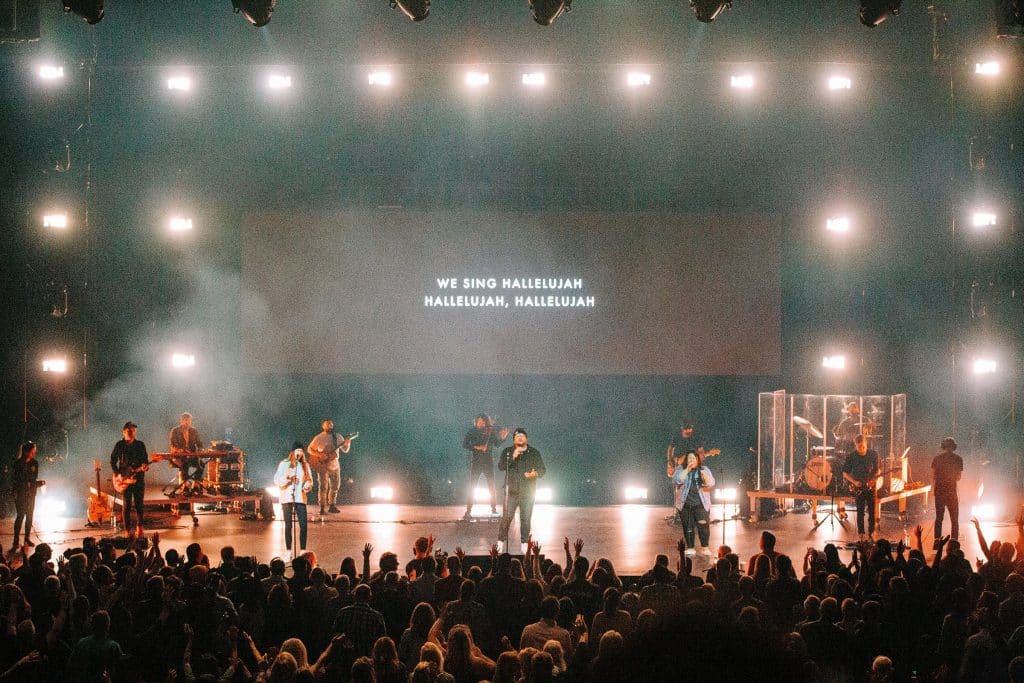
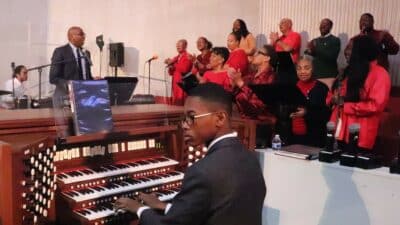


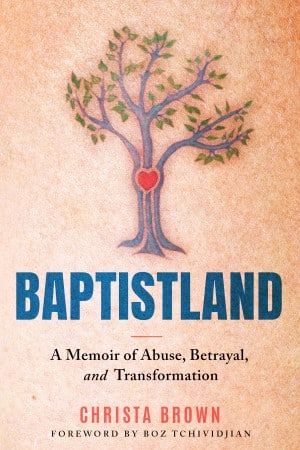
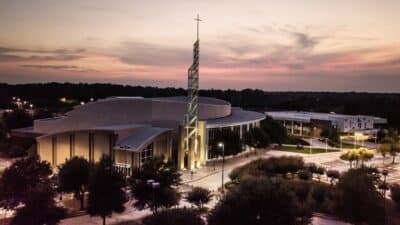











18 Responses
The title of the article is kind of silly on its face. Not every song produced by mega church band sounds the same. How boring that would be! Obviously, the lyrics are different.
The author is discounting the role of the worshipper in the pew. Certain songs have an anointing on them from the Holy Spirit and they endure.
I personally pay close attention to the lyrics. Do they magnify God and speak of what Christ has done? “Rest on Us” is about the same Spirit that hovered over the waters in Genesis 1 resting on us. Another song, “I Thank God” talks about being turned around and being planted on solid ground. Depending on what the worshipper is experiencing at the moment, these songs can take you to an entirely different dimension in worshipping God.
What exactly make them anointed? How would you measure that?
Seems like you’re saying the endure. So would that make Hey Jude by the Beatles anointed? It has endured. Or is it only song sung in church?
Songs with questionable theology have certainly stuck around. I’m aware people from different backgrounds will have their own view on this. I’m genuinely curious about how one determines what songs are anointed verses which songs are simply appealing to the masses and catch on and stick around.
“Depending on what the worshiper is experiencing at the moment.” In other words, no objective reality of worshipping God. On the contrary, we are seeking the subjective experience of the individual and his feelings about it?
I actually find that a much more damning critique than the article. What, precisely, are we terming worship? Our personal feelings? Our feelings about our feelings? Are we worshipping in emotion and in truth?
Emotions are a part of the whole person. They are not the whole of worshipping God. Seeking another dimension or spiritual ecstasy is not the purpose of corporate worship. Perhaps this musical marijuana (lyrical LSD?) may be appropriately used to heighten spiritual sensibilities in private devotion. But corporate worship is not about me feeling good. Instead of being lifted to seventh heaven, we should be bowing down before the King of heaven; joining the saints and angels in the worship of heaven.
Well stated, IMO.
Worship, instead of being the disposition of our entire life has been reduced to ditties in many cases: puerile lyrics to banal tunes. Romans 12: 1-2 sets the standard for worship!
And then we have “Holy Spirit blesses that make it to the top of the charts”. Does anyone really think that worldly success is of any interest to the Spirit of God? Not so. His thoughts are above our thoughts and his ways are above our ways.
On a personal note, while I find our hymns and spiritual songs encouraging, they are a small part of my church’s corporate worship; the prayer book comes first; preferably the one composed by Cranmer. By it we are guaranteed a scripture-filled, sagacious and stilling atmosphere that encourages our attention being directed to our Father in Heaven, sometimes irrespective of who is reading the service.
“They can go toe-to-toe with some of the biggest acts in music”. Why are they writing with their toes? Sounds like worship leaders are the church equivalents of restaurant
dishwashers. Same job different day.
“Jolicoeur said any concerns about the theology of the four megachurches don’t seem to affect the demand for their music”…”Payne doubts that scandals at churches such as Hillsong will affect the popularity of their music” — “because people have a relationship with the songs, not with church leaders.” …“A lot of it is, what is God doing for me now? And what has God promised to do for me in the future?” she said.
I LOVED THIS ARTICLE!!! The writers intentionally do not point out clear, objectively documented trends. They do so with no bias in support or against – Joe Friday – “Just the facts.” And in doing so, they point out what could be symptoms…of…hmmm?
Most evangelical leadership, whether self-declared charismatic, non-charismatic or undeclared incognito hybrids, do not have the theology to understand the persuasion mechanisms and their effectiveness. This is because they do not understand who Lucifer was before his rebellion. And they do not understand “The Contest” that Creation is hosting. …”not against flesh and blood…”
Oh, yes, I am a reluctant card carrying charismatic. And while I appreciate the worship mechanisms, I HATE THE DECEPTION. And so I do not listen to any contemporary Christian radio. Now, where did I put those Hosanna Integrity CDs?
correction to this sentence, pls: “The writers intentionally point out clear, objectively documented trends.”
Yes, John exactly… I recently did a series of teachings on true worship at one of these “rock churches”… and, as a survivor and veteran of the Jesus Movement, charismatic beyond question, I was shocked… shocked at the cacophony, the volume and tone of the “music”… it had first place in the hearts of this young-people’s tabernacle …
Over here in the UK, songmakers like Stuart Townend, Keith (and Christine) Getty, and Graham Kendrick seem to get at least as much exposure as the vast majority of the songs listed.
“Those songs become one of the primary ways of connecting with God — rather than prayer or sacraments or other rituals.”
This more than anything else is what drove me away from the doldrums of generic-brand, industrial sized evangelicalism and toward something still evangelical, but more rooted in older patterns and practices, involving a prayer book, a sacramental understanding of the Christian walk, and a well-formed theology of corporate and personal worship. Worship can involve music, but there’s a lot more to it than music, starting from the heart and renewing the mind through devotional practice in community.
As far as the manipulation potential of limited popular sources, there are many cures for that: Worship leaders can deliberately choose to vary their contemporary sources. They can go back a few decades. They can consult their pastor(s), read some theology, and look for lyrical depth. Christians have been writing music and poetry for a long time, and there are centuries to millennia of Christian hymns and spiritual songs from across traditions and cultures. If they have the aptitude, pastoral support (and bravery), more musicians could also try their hand at songwriting for their own congregation. With a little imagination, I’m sure there are many other things that can be done.
Being a professional musician, I tend to gravitate to worship service in churches I attend. I am also a song writer, have been for over 40 years. At one church, I brought a song to the worship leader, who I knew previous to attending that church. He loved the song – or so he said – asking me for the lyrics and a chart of the music; I also provided a recording so he would know the melody, pacing, etc. It never saw the light of day. But HIS songs were a regular feature. So much for “home grown” music from people who know how to write music. I think it was an ego thing; I am a better songwriter than he is (not bragging, just speaking truth).
Geoff, I hear you in terms of egos and territorial boundaries getting in the way. I don’t know, but could imagine that this is especially the case in larger churches. Then again, my dad served several decades as an organist in smaller mainline churches, and I remember hearing about one or two passive-aggressive music directors and controlling pastors in those settings, too. Human beings, right?
The local church I attend is relatively small but has an embarrassment of riches in terms of trained musical talent, including our pastor. There is a general willingness and encouragement to share creative talent, within the bounds of a liturgical setting where music plays an important role but does not take center-stage like it seems to elsewhere. It is an atmosphere of good faith all around, as far as I can observe (as a non-musician). Good thing, too, given our current size.
It is a world of 7/11 lyrics, with music patterned after U2. The only person who has done decent job of quality music in M. W. Smith, and that is for total of 3 songs, that actually come across as praise/worship.
I’d love to see similar research on gospel music.
And I miss hymns. There are some soul-stirring, Bible based lyrics in hymns that go overlooked because they aren’t “trendy.” A few years ago I was blessed to hear a whole sermon series rooted in hymns. Made me appreciate being raised singing them both in my house and in the sanctuary on Sundays.
A very well written aritcle, but not at all surprising. The Evangelical Industrial Complex is driven by Mega Churches in all areas including print publishing, radio, online content, Service organization, outreach approach, church/pastoral focus, aesthetics and of course worship music.
The Mega Church has convinced us all that a “Coldplay Concert followed by a TED Talk” (not my words unfortuantely) is what we need and evangelical churches across the size spectrum have swallowed the bait.
Holy cow! I’ve used the TED Talk characterization to describe sermons these days! Nice to see someone else gets it, too. And I agree, the “worship” seems more a mini-concert than true worship these days.
Mac Powell, Third Day, Mercy Me, Casting Crowns, Kutlass, Jack Cassidy, Chris Tomlin, Jeremy Camp. Their Jesus/Bible inspired songs help me every day. I am okay with them sounding the same. It’s His Glory I am praising!
Well, I thought I was just me, these worship songs do sound alike, and personally have opted to look for different genres of worship music in YouTube. I regret that worship here in America has become more of production of a theater environment with black walls, large screens, a worship band that plays and repeats the same songs and blast the bass and drums to get a more emotional response. Let’s get back to the basics of a Christ centered worship, one that reflects a corporate participation rather than theatrics driven.